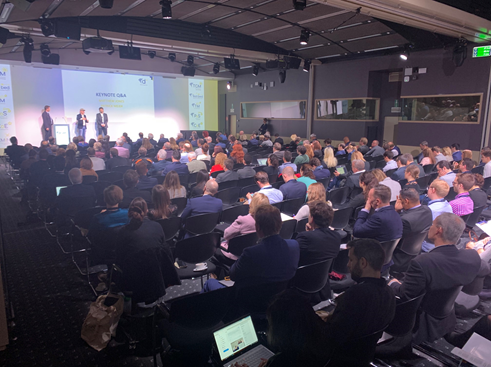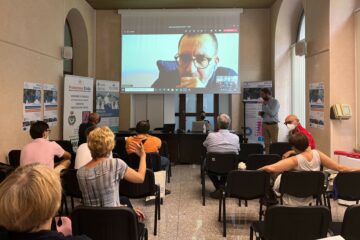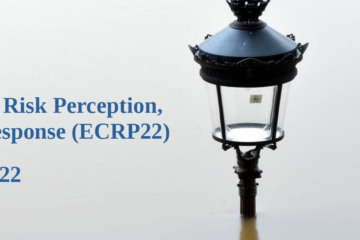The programme marked the end of a 6 year drive to create a standardised approach to the trialling and testing of innovative products into the Crisis Management area. RESILOC participated in the project’s final conference to pro-actively integrate the key outputs into it’s work & further expand connection points for action on #Resilience.

The week started with a discussion on the need for standardisation with DG Home Leading a discussion on the need for greater standardisation. Debate then highlighted how standards may be integrated (The BRIDGIT2 Project), International outreach processes embedded in the SMR project and finally, the role of the Stair4Security Platform for establishing pre-normative standards in the field of Security. It became clear that through the facilitation of CENCELEC, security is a more advance environment for research definitions but that this area has a lot of overlap for crisis and disaster resilience researchers. The RESILOC attendees participated in a round table discussion to produce a SWOT analysis of experiences, approaches and initiatives to integrate standardisation in research programmes.
As a method of broadening understanding of the outcomes of the project, a ‘VIP’ event was hosted to provide an overview of achievements and to engage organisations in the development of legacy value. The event included a guided tour of the project deliverables and a chance to contextualise them for various new stakeholders. A number of ‘Centres of Expertise’ have been established including one to be managed by RESILOC partners, the Resilience Advisors Network. RAN have created the European Innovation Providers CoE – catchily named the EIP specifically to promote uptake of the products from innovation developers and producers from the private sector.
DG Home policy lead captured the problems with Standardisation and outlined the ambitions of the EU as he spoke about the difficulties of engaging practitioners and bridging the gap with academics. This is compounded by the gaps between security and Civil Protection organisations and finally National barriers. He explained that NOW is the time to address this through the Horizon Europe calls live between now and May 2020.

One of the strongest deliverables of Driver+ is seen as being of immediate benefit to the RESILOC community – CMINE stands for the Crisis Managers Innovation Network Europe. In essence it is a mini LinkedIn for our discipline and networks. RESILOC has been created as a discrete project on the Platform and members are encouraged to sign-up and associate themselves with the Project at www.cmine.eu. Out of interest, our project partner, RAN, have adopted CMINE as their main means of communicating information and priorities amongst Advisors through the use of a ‘Private Group’. This enables confidential exchanges on matters such as existing work or new projects.
The main closing conference featured all products and stakeholders but, for RESILOC, we focused on one in particular – the Trail Guidance Methodology. The Programme Management Board (PMB) has already agreed to base the pilot trials on this framework and the opportunity to formalise this arrangement was taken by the Task Lead for this – Jon Hall, who took the opportunity to meet with the ‘TGM Task Leader from Driver+, Chiara Fonio of the JRC. As Chiara commented: “Properly designing your Trial from a methodological perspective is key to finding out if and how innovative solutions can help resolving your needs. Before adopting potentially innovative solutions and investing time and money to figure out what fits you best, you may want to assess them in non-operational contexts (such as a Trial) through a structured approach.”
The conference was a superb demonstration of the outcomes of the Driver+ project but was also a helpful dissemination opportunity for RESILOC as it becomes better known throughout the research environment.



1 Comment
Jon Hall · February 20, 2020 at 6:52 am
The conference and side events were a really good opportunity to spread awareness of RESILOC and even to recruit direct support for it through the Trial Guidance Methodology. A well worthwhile effort.